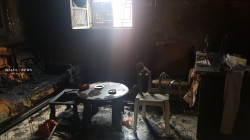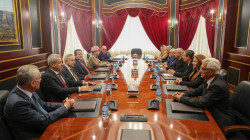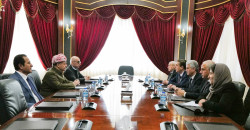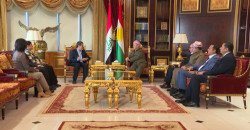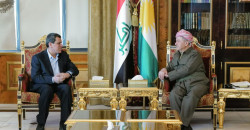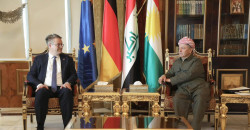Kurdish Leader Barzani, KNC discuss key developments in Syria
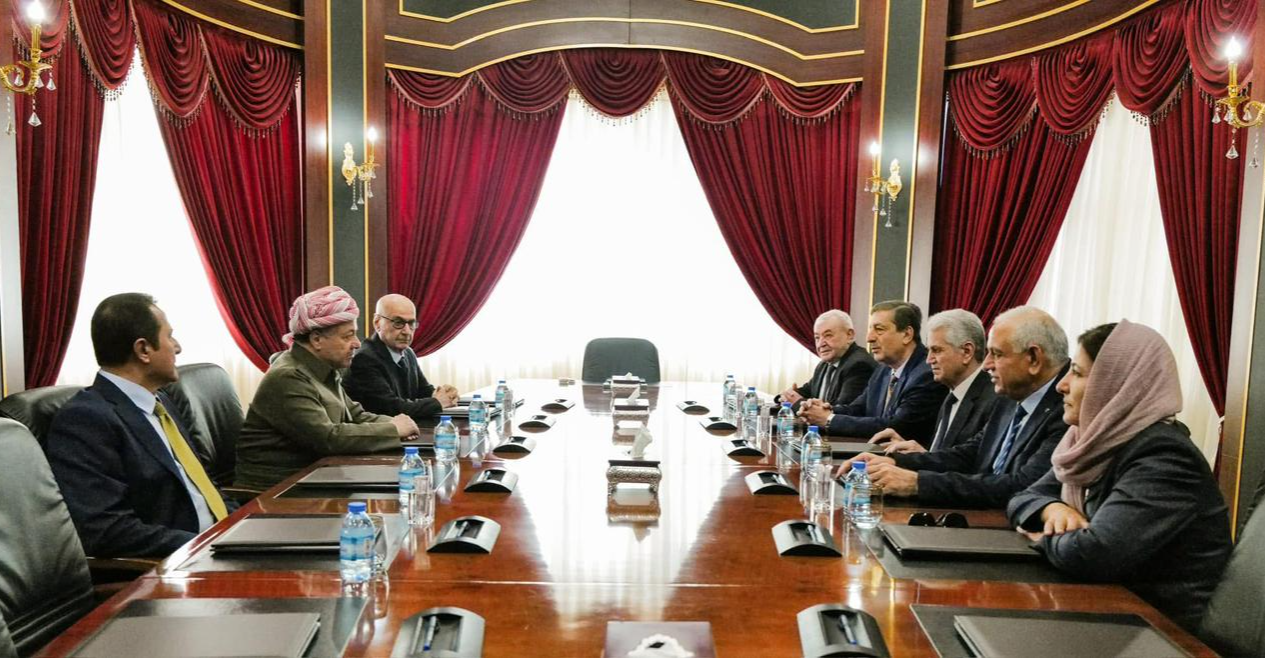
Shafaq News/ On Tuesday, Kurdish leader Masoud Barzani received the presidency of the Kurdish National Council in Syria (KNC) in Erbil, the capital of the Kurdistan Region, to discuss political developments in Syria.
The discussions covered the political and security situation in Syria, the outcomes of dialogue and rapprochement among Kurdish parties, and the visit of Mazloum Abdi, Commander-in-Chief of the Syrian Democratic Forces (SDF), to leader Barzani, according to a statement from Barzani's office.
During the meeting, Barzani stressed the importance of “unity, coordination, and joint efforts among Kurdish parties in Syria.”
Barzani’s Efforts Since 2014
In October 2014, leader Barzani spearheaded an initiative to unify Kurdish forces in Syria, hosting a series of meetings in Duhok, Kurdistan Region, that brought together two Syrian Kurdish parties: the Democratic Union Party (PYD) and the KNC. The culmination of these discussions was the Duhok Agreement, though it ultimately failed to materialize. Following the fall of the Al-Assad regime in December 2024, the call for Kurdish unity in Syria regained urgency, as Kurdish leaders aimed to negotiate with Syria's new administration and secure their rights.
Amid these renewed efforts, Abdi visited Erbil on January 16 for talks with leader Barzani. The discussions between the two officials focused on Syria’s changing political and security landscape, along with the framework for Kurdish parties to navigate the country’s new realities and to establish a unified Syrian Kurdish approach, according to a statement.
During the meeting, both leaders stressed that "Kurdish parties in Syria must determine their future independently and without external interference, relying on peaceful means to safeguard their rights,” highlighting “the importance of unity and solidarity with Syria’s new rulers to achieve mutual understanding and agreement to foster peace and stability and prevent a recurrence of the suffering endured by the Kurdish people and other communities in Syria.”
